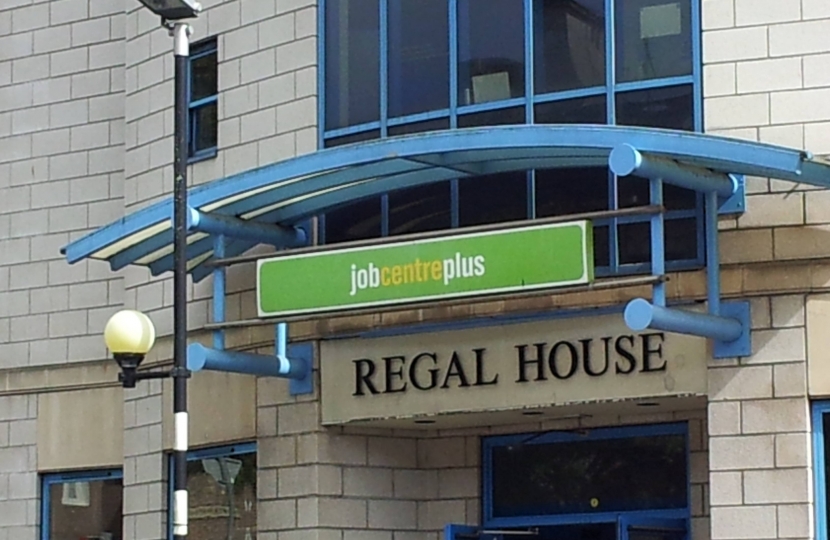
Figures released this week show across the South West there are now 2,838,142 people in work – meaning 343,826 more people have been able to access the security of a job.
And there are more people than ever in secure jobs with 24.2 million in full-time employment.
Wages have also risen ahead of prices for the 20th consecutive month, meaning families have greater financial security and can plan for their future with confidence.
The number of disabled people in work has also increased to a record high. In Torquay and Paignton (Based on the Torbay Constituency) the number of people who are claiming key out-of-work benefits has fallen by -627 since 2010 – an overall reduction of -24% per cent.
These figures show the underlying strengths of our economy, with millions of people benefiting from a sustained boost in pay and access to a regular pay cheque. The Conservatives have a proven track record on delivering on jobs, with 3.7 million more people in work since 2010.
Conservative Candidate for Torbay, Kevin Foster has welcomed these figures, saying:
“These figures are another sign the fundamentals of the British economy are strong with the unemployment rate lower than at any point in nearly half a century. Since 2010 3.7 million jobs have been created, including 343,826 more jobs across the South West."
“In the next few weeks, voters face a crucial choice. A Conservative government led by Boris Johnson to Get Brexit Done and focus on people's priorities like creating jobs, the NHS and our schools. Or Jeremy Corbyn as Prime Minister, and an economy buckling under the strain of soaring borrowing and the chaos of another two referendums.”
Key Statistics:
- The unemployment rate is at its lowest level since 1974. The unemployment rate is currently 3.8 per cent –it has not been lower since 1974 (ONS, Labour market statistics, 12 November 2019, link).
- Full time employment: At a record high, and up by almost 3 million since 2010. In the three months to September, there were 24,213,000 people working full time that is up from 21,221,000 in period covering February- April 2010 (the last full period that Labour were in power).
- Employment: 8 million (up 323,000 over the last year and up by 3.7 million since 2010).
- Employment rate: 0 per cent (up 0.5 points over the past year and up 5.8 points since 2010).
- Unemployment: 1.3 million (down 71,500 over the past year and down by 1.20 million since 2010.
- Wages: Average weekly earnings for employees increased by 3.6 per cent compared with a year earlier – growing by 1.8 per cent after adjusting for inflation – meaning people have more money in their pockets. Wages have increased ahead of prices for 20 months in a row.
- Youth unemployment: There are 438,000 fewer young people out of work since 2010 – almost halving since 2010.
- Female employment: There are 1.8 million more women in work since 2010
- Ethnic minority: The number of people from an ethnic minority in work is at a record high. There are 1.2 million more people from an ethnic minority background in work since January-march 2010, increasing from 2,736,000 to 4,026,000.
- Disabled: The number of disabled people in work has increased by 1.3 million, and is now at a record high with the number of disabled people out of work at a record low.
Notes to Editors
- Labour would wreck our economy and leave people with less money in their pockets:
- Labour have committed to spending £1.2 trillion over the next five years. Of this total, Labour have made £651 billion worth of spending commitments that are considered day-to-day spending and therefore cannot be borrowed for (The Telegraph, 10 November 2019, link; The Conservative Party, The Real Cost of a Labour Government, 10 November 2019, available upon request). Labour’s day-to-day black hole means that each individual taxpayer in the UK could see their income tax rise by £2,400 a year – meaning workers would lose a month’s wages in higher taxes to pay for Corbyn’s reckless spending plans. Corbyn’s Labour would open up a huge black hole in the nation’s finances and hard-working people will be the ones that suffer. In order to pay for his policies, he will not only have to massively increase borrowing and debt, he will also need to hike up taxes by £2,400 per person – this is equivalent to an entire month’s pay for the average earner (The Sun, 11 November 2019, link
- Labour have proposed a punitive new tax every two months since Corbyn took office – clobbering hardworking people with endless tax hikes that would leave them with less money in their pockets. These tax hikes include forcing more families into paying punishing death duties, raising taxes for 12.4 million workers by an average of £2,500, putting up the cost of a holiday and introducing a garden tax (The Daily Express, 13 September 2019, link).
- Labour’s benefits splurge would cost taxpayers a staggering £520 billion a year – almost four times the amount we spend on healthcare. Labour’s benefits bombshell include a universal basic income – a free for all handout to everyone from Premier League Footballers to even prisoners (Daily Express, 23 September 2019, link).
- Labour’s plans to renationalise vast swathes of our economy would cost £200 billion – hammering investment and pension pots and leaving people with nowhere to turn when things go wrong. According to the Confederation of British Industry, their plans to renationalise water and energy utilities, train companies and the Royal Mail would cost at least £196 billion. The huge sum is equivalent to the total amount of income tax paid by UK citizens in a single year, and is almost as much as the government’s annual budget for health, social care and education combined (City AM, 14 October 2019, link).
No Labour government has ever left office with unemployment lower than when it started, meaning more people were denied the security of a regular wage. From May to July 1997 to March to May 2010, the unemployment level increased from 2.1 million to 2.5 million (IFS, 26 May 2017, link).

